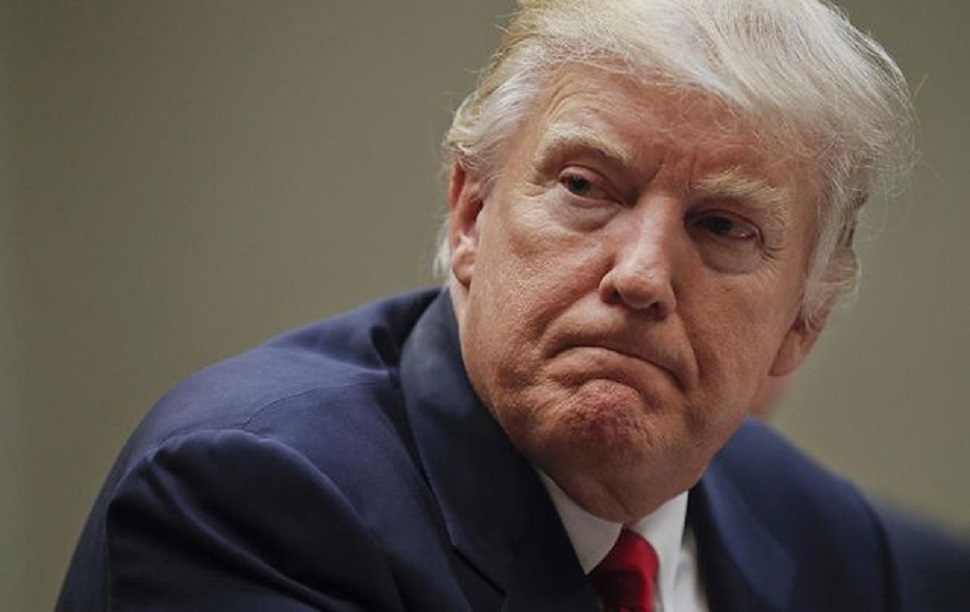Pressure On Trump
| Date :10-Apr-2019 |

By Mark Gruenberg,
By a 247-175 vote on April 4, the Democratic-run House okayed the final version of Senate Joint Resolution 7, invoking the War Powers Act to force Trump to withdraw US troops and aid from the murderous Saudi-led war in the small Arabian peninsula nation THE United State Congress is ordering GOP President Donald Trump to end US military involvement in Yemen. His advisors are telling him – via a veto – to stay in. Since the Korean War in the early 1950’s Congress has ceded to the President its constitutional role of deciding when to go to war. The vote by the House and recently by the Senate to get out of Yemen is a sign that this is something they may want to change.
By a 247-175 vote on April 4, the Democratic-run House okayed the final version of Senate Joint Resolution 7, invoking the War Powers Act to force Trump to withdraw US troops and aid from the murderous Saudi-led war in the small Arabian peninsula nation. Sixteen Republicans broke from Trump to join all the Democrats in voting to get out of Yemen, while Rep. Justin Amash, R-Mich., voted “present.” A wide coalition of organisations, including US Labor Against War, several peace groups, the Unitarian Universalists, the Friends Committee on National Legislation and the CPUSA, have been campaigning to get US troops out of Yemen. Congress – including several dozen Republicans combined in both houses – agrees. “Bombing hospitals is a war crime. Torturing detainees is a war crime. Attacking schools is a war crime. Blockading ports so food and supplies can’t get in is a war crime.
We must stop our complicity in Saudi war crimes by ending our involvement in Yemen,” said Rep. Ro Khanna, D-California, the House leader in the fight to get out of Yemen. Sens. Bernie Sanders, Ind-Vt., and Mike Lee, R-Utah, led the anti-war fight there. “Time after time after time, coalition strikes have resulted in the loss of innocent life,” House Foreign Affairs Committee Chairman Eliot Engel, D-N.Y., told his colleagues.
“The violence has set off ripple effects that have contributed to the worst humanitarian crisis in the world.” “Eighty-five thousand children have starved to death. Fourteen million are on the brink of famine. More than a million suffer from cholera. Just last week, the coalition reportedly bombed a hospital run by Save the Children.” “In the face of this catastrophe, the administration has demanded no accountability from the Saudis and Emiratis. But Congress won’t remain silent.” “This measure would specifically ban aerial refueling of warplanes carrying out airstrikes. The Defense Department has stopped refueling as a matter of policy. This measure would do so as a matter of law.”
“The Defense Department also says the United States is not engaged in hostilities when it comes to this war. Well, the Defense Department is entitled to its opinion, but Congress is a coequal branch of Government and only we say and decide when the United States is at war,” Rep. Engel declared. Trump’s Office of Management and Budget promptly said it “strongly recommends” he veto the anti-war resolution. The Yemen war ban would “negatively affect our ability to prevent the spread of violent extremist organisations — such as al-Qaida in the Arabian Peninsula and IS in Yemen—and establish bad precedent for future legislation by defining ‘hostilities’ to include defense cooperation such as aerial refueling,” OMB said.
“The premise of the joint resolution is flawed.” “Since 2015, the United States has provided limited support to member countries of the Saudi-led coalition, including intelligence sharing, logistics support, and, until recently, aerial refueling, to assist in the defense of United States allies and partners. This support has not caused United States forces to be introduced into hostilities.” (IPA)